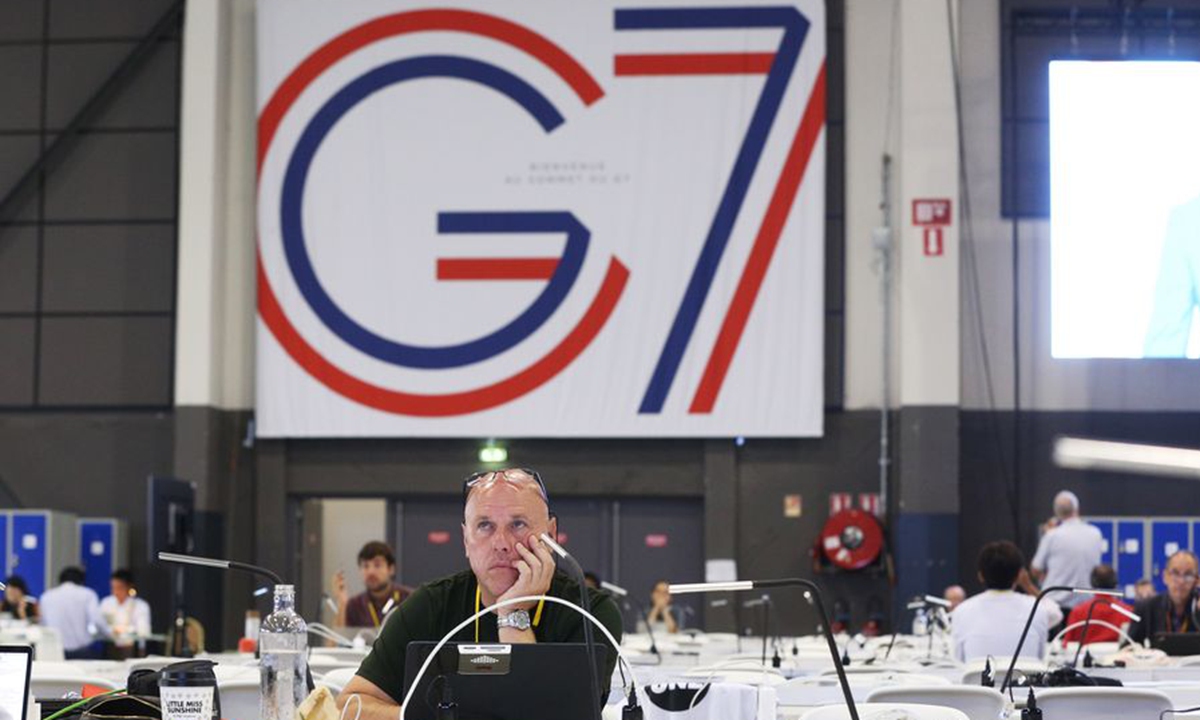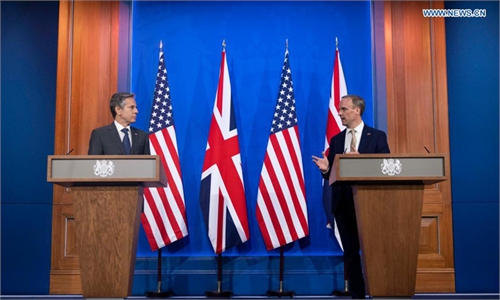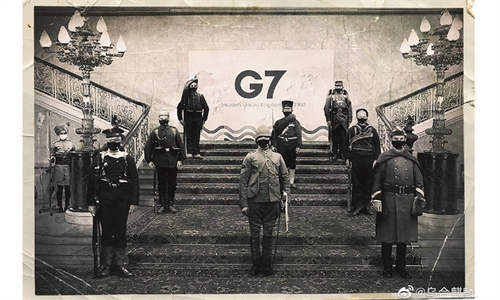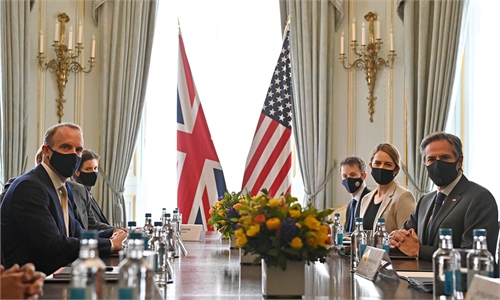COMMENTS / EXPERT ASSESSMENT
Upholding a political intention, how far can a 'G7 BRI' go?

Journalists work at the G7 summit press center in Biarritz, France, Aug. 25, 2019. Photo: Xinhua
The Group of Seven (G7) is planning to announce an alleged "Clean Green Initiative" at next week's summit in the UK, aiming to rival the China proposed Belt and Road Initiative (BRI), according to a report published by Bloomberg.
As a "green alternative" to BRI, it would "provide a framework to support sustainable development and the green transition in developing countries," the report said and noted that the initial purpose is to create a "strategic framework" and it is not clear "whether any new money would be put behind the G7 initiative."
The information is yet to be proved but it is not the first time for the topic to be highlighted by media outlets. Earlier in March, UK and US leaders reportedly discussed during a phone call an infrastructure plan led by "democratic states" which has been referred by global observers as a "democratic version of BRI".
However, regardless of the reported plan being labeled as a "democratic version" or a "G7 version", it is essentially a plan driven by a political agenda which could see barely tangible progress.
First, as two core members of the G7, both the US and the UK are facing surging national debt levels. The UK's financial deficit has hit a record high in 50 years and its national debt is expected to rise to 93.8 percent of GDP next year, and to peak at 97 percent in 2023-24.
Meanwhile, the Biden administration's new proposed infrastructure plan has been downsizing, from the original $2.3 trillion to the recent $1.7 trillion, which seems still not enough to gather support from Republicans. Both the willingness and capability of Western countries to offer foreign aid has been decreasing in recent years.
Second, it is China's sound industrial system and strong infrastructure capacity that firmly promote the launch of BRI projects. The effective connection between China's advanced infrastructure capacity and the development needs of countries under the BRI framework is one of the key reasons behind the success of BRI.
So far, China has signed cooperation agreements with 140 countries and 31 international organizations under the BRI framework. Just in Africa, 46 countries and the African Union Commission have inked agreements with China. In spite of the COVID-19 pandemic disruption, many Chinese engineers and technicians are remaining at their position in Africa facilitating the construction of more than 1,100 cooperation projects in the continent.
In fact, Western developed countries, which launched decades of development aid with political strings attached in Africa in the last century, have not only failed to effectively promote economic development in the continent, but also failed to reach tangible results in helping African countries to achieve social development and political stability.
Foreign aid or cross-border cooperation, whether under BRI or other frameworks, should be based on principles of mutual respect and benefit. The development needs of local people are the premise, rather than the national interest of other countries.
As for the BRI, a proposal without any political strings, it has been bringing tangible results to local economies. Also, it is not an exclusive club and instead, it more than welcomes Western rich countries to join the efforts to facilitate the recovery of the less developed economies, no matter under which framework. But if it only serves a political agenda, it simply will not work.
The author is an editor with the Global Times. bizopinion@globaltimes.com.cn



